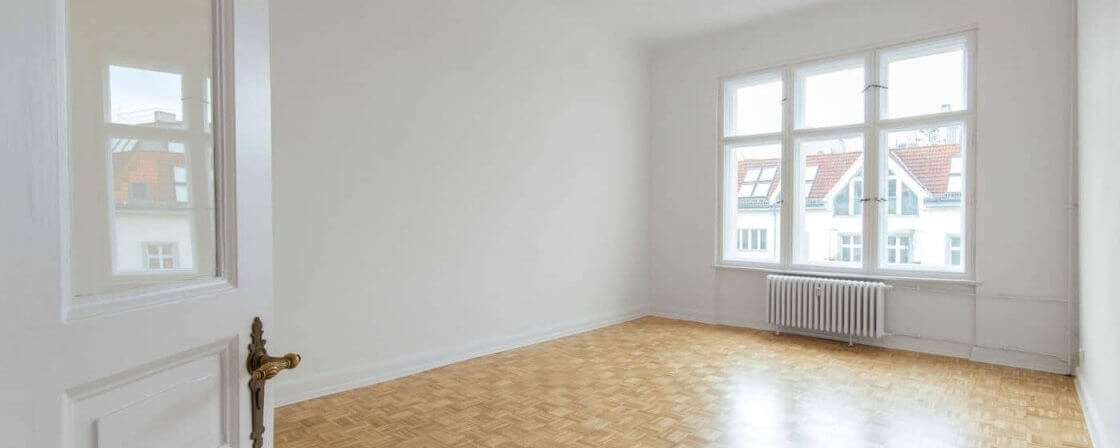Chapters of articles
Who pays annual property tax and for what
Property tax is a property tax that is regulated by the Real Property Tax Act. It stipulates that the taxpayer is any natural or legal person who owns or uses immovable property (land or a building). The taxpayer may also be a trust/share fund, a builder with a building right, or a lessee/tenant or user in special cases provided for by law (e.g. if the owner is not known).
This tax is divided into two parts: land tax and tax on buildings and units, which is also reflected in the way the return is completed. If you don’t know how to fill in the property tax form, we recommend that you contact an expert, use the detailed instructions provided by the tax authorities or choose to fill it in online via the My Taxes portal.
In the vast majority of cases, the property owner is the taxpayer. However, sometimes it may also be the trust or unit trust (if the property is owned by the unit trust) or the builder who has the right to build on the land.
Real estate tax is the collective name for two separate taxes. These are the land tax and the buildings and units tax. If we emphasize their separate nature, it is also reflected in the fact that they are listed separately in the tax return.
The subjects of land tax are:
- land situated in the territory of the Czech Republic and
- registered in the Land Registry.
The subject of the tax on buildings and units (flats and non-apartments) are:
- buildings and units situated in the territory of the Czech Republic and
- completed or in use.
Exemption from the tax on immovable property
The law regulates the types of land and buildings that are completely exempt from the tax. These include, for example, land and buildings owned by the state or a municipality or land and buildings used for schools, galleries and health care facilities. Buildings and units are not subject to the tax on buildings and units, nor are buildings consisting of taxable units (e.g., apartment buildings as units).
There are many myths about the property tax exemption. Often caused, for example, by confusion with the real estate acquisition tax, which was abolished in 2020.
Are you solving a similar problem?
Not sure how to do your taxes properly so you don't get it wrong?
We can help you navigate the law, whether it’s dealing with a specific tax situation, preparing for an audit by the tax authority or defending yourself in court.
I want to help
- When you order, you know what you will get and how much it will cost.
- We handle everything online or in person at one of our 6 offices.
- We handle 8 out of 10 requests within 2 working days.
- We have specialists for every field of law.
Tip for article
How much is the property tax? Each taxpayer calculates the amount of tax on his/her own tax return. It depends on the area of the land or the statutory rates and coefficients. How to calculate the property tax? We have dealt with this in a separate article.
How to opt out of paying tax
If, on the other hand, you previously owned the property and paid the tax annually, but as of 1 January of the new year you are no longer the owner, you must notify the tax office so that you no longer pay the tax. There is no specific form, just a simple computerised or handwritten notice to be delivered to your tax authority (i.e. the local tax office) by 31 January at the latest.
How and when is real estate tax paid?
Wondering how and when to file your real estate tax return? The deadline for filing your property tax return is 31 January. If you need a form, look for the tax forms section of the office’s website. In some cases, you also need to take into account the local coefficient, which affects the final amount.
However, the return is not filed repeatedly (as is the case with income tax, for example), but only once. Thereafter, ‘only’ tax is paid.
Property tax – due date
You can pay the tax by bank transfer, by bank transfer, by SIPO or in cash at the tax office.
If the tax exceeds CZK 5,000, it is possible to split the payment into two instalments. The standard deadline for paying the tax is the end of May. If the payment is divided into two instalments, the second instalment must be paid by the last day of November.
Many new property owners wonder why they are asked on their property tax form if they are farmers or fishermen. This is because people who farm and fish have a staggered deadline for paying their taxes – specifically August 31 and November 30.
What happens if you don’t file or pay your property tax on time?
Failure to file or pay your property tax on time puts you at risk of penalties that include penalties and interest on late payments. The Real Property Tax Act states that if the real property tax is not paid on time, you will not avoid interest on late payments from the 4th day after the due date. These are equivalent to the two-week repo rate set by the CNB (currently 3.50%), plus 8 percentage points.
When is the obligation to file a new return actually due?
It is often assumed by the general public that a real estate tax return is only filed when a house or flat is bought or sold. While this is the most common reason, it is far from the only reason. The obligation to file a return also arises if the property changes its area or purpose of use. Typically, this is when the owner adds a garage, attic or garden gazebo to the house.
Another case is the conversion of a non-residential space into a flat, which happens, for example, in the case of former offices in city centres that are converted into attractive housing. If the taxpayer does not file a return, he or she runs the risk of penalties, as the amount of tax would no longer correspond to reality. Simply put – as soon as something significant changes on your property, not only you should know about it, but also the tax office.
What to do if you no longer own the property?
Have you sold or donated a property in the previous calendar year? Then you are no longer liable for property tax. However, you must notify the relevant tax office in good time.
The Real Estate Tax Act says: “If a person who was a taxpayer of real estate tax has lost the status of a taxpayer because during the tax year the ownership or other rights to all real estate in the territorial district of the same tax administrator which was subject to real estate tax with him have changed, or these real estate items have ceased to exist, he is obliged to notify the tax administrator of this fact no later than 31 January of the following tax year.”
There is no prescribed form to opt out of the tax, so a free form letter or a new tax return can be used if you still own any real estate in the zoning district.
The jurisdiction of the tax office is determined by the locality in which the property is located, not by your permanent residence.
Property Tax Return Summary:
- A tax return must be filed by anyone who acquired real property in any way during the previous calendar year.
- The obligation also applies to anyone who has sold real property but continues to own other property in the same county.
- Normally, property tax returns must be filed by January 31.
- The tax return must be filed in the county in which the property is located.
Anyone dealing with a property tax form should know that the tax calculation includes not only the value of the property, but also factors based on the size of the municipality or township. If you have just acquired real estate, be sure to also find out if you are subject to any other obligations, such as the real estate transfer tax, which was previously governed by a special law. Although this tax has been abolished, many new owners still mention it when asking about tax obligations.
Are you dealing with a property purchase or tax obligations?
At The Affordable Lawyer, we are happy to help you with everything. We will protect your rights, prepare contracts and advise you on the obligations that need to be met. We will guide you through the entire process and make sure everything goes without a single mistake.
Frequently Asked Questions
When do I have to file my real estate tax return?
The tax return is due by 31 January of the year following the acquisition (purchase, gift, inheritance, construction). It is not filed every year, only when there is a change of ownership or other circumstances that affect the tax.
How is the tax amount determined?
The calculation depends on the area and type of land or building, the basic tax rate and the coefficients (basic according to the size of the municipality and, if applicable, a local coefficient set by the municipality). From 2024, the tax is additionally multiplied by the so-called inflation coefficient (in 2025 and 2026 it is equal to 1.0).
What if I forget to pay my tax on time?
Default interest starts from the 4th day after the due date. This is always the two-week CNB repo rate on the 1st day of the half-year + 8 percentage points. In 2025, it is 12.00% p.a. in the first half-year and 11.50% p.a. in the second half-year.
Do I have to file a return even though I sold the property?
Yes, if you were no longer the owner by 1 January of the new year, you must notify the tax office (by 31 January). Either file a notice or a new return – depending on whether you still own another property in the county.




